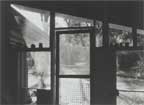Santa Cruz County’s Buzzing With Bees
 Vegetable gardening is enjoying a comeback across the country, thanks in large part to First Lady Michelle Obama. More and more people are also starting to raise chickens and ducks too. And then there is beekeeping—the perfect way for backyard farmers to pollinate their crops and stock up on honey. It’s a popular hobby across Santa Cruz County, but most people are doing it illegally. The problem is the permit. Not only do these cost $1,000, but applicants must also inform their neighbors and participate in a public hearing before the zoning commission. Then the results of the hearing can be appealed to City Council.
Vegetable gardening is enjoying a comeback across the country, thanks in large part to First Lady Michelle Obama. More and more people are also starting to raise chickens and ducks too. And then there is beekeeping—the perfect way for backyard farmers to pollinate their crops and stock up on honey. It’s a popular hobby across Santa Cruz County, but most people are doing it illegally. The problem is the permit. Not only do these cost $1,000, but applicants must also inform their neighbors and participate in a public hearing before the zoning commission. Then the results of the hearing can be appealed to City Council.Planning Director Juliana Rebagliati and Assistant Planning Director Alex Khoury say that not a single person has so far applied to raise bees within Santa Cruz’s city limits. Considering the process involved, it’s no wonder. Besides, a skilled beekeeper is not likely to get caught, says Peter Cook of the Santa Cruz Beekeeping Guild, regardless of whether their hives are legal or not.
In Capitola, on the other hand, city rules don't address beekeeping, said Senior Planner Ryan Bane. But they do allow recreational gardening and horticulture, so recreational bees probably are permitted, he said. Capitola leaders have not received one complaint from an angry beehive neighbor, Bane said, and until they do he doubts the city will take up the issue.
In Watsonville, two beehives have been allowed on residential properties since 1980, provided hives sit 25 feet from another home.
Given the situation, Scotts Valley’s City Council debated last night whether to rescind the restriction on beekeeping by private homeowners. Councilmembers did, however, insist on several restrictions. Beekeepers will be limited to two hives only on properties exceeding 10,000 square feet, and there must be a 25-foot buffer between the hives and all property boundaries.
Of course, not everyone is pleased about the proposed changes to the law, including Scotts Valley Mayor Jim Reed. He would like to see the compulsory buffer zone extended beyond 10,000 feet. Then there are the people allergic to bee stings, and could go into anaphylactic shock. Cook, however, is not worried about that. He says that the only reason bees would sting anyone is if that person “messes with their house.” If that’s the case, the solution might be to require beekeepers to post a sign on their property that says “Beware of Bees.”
Read more at the Santa Cruz Sentinel.






























1 Comments:
Hi thanks for poosting this
Post a Comment
<< Home